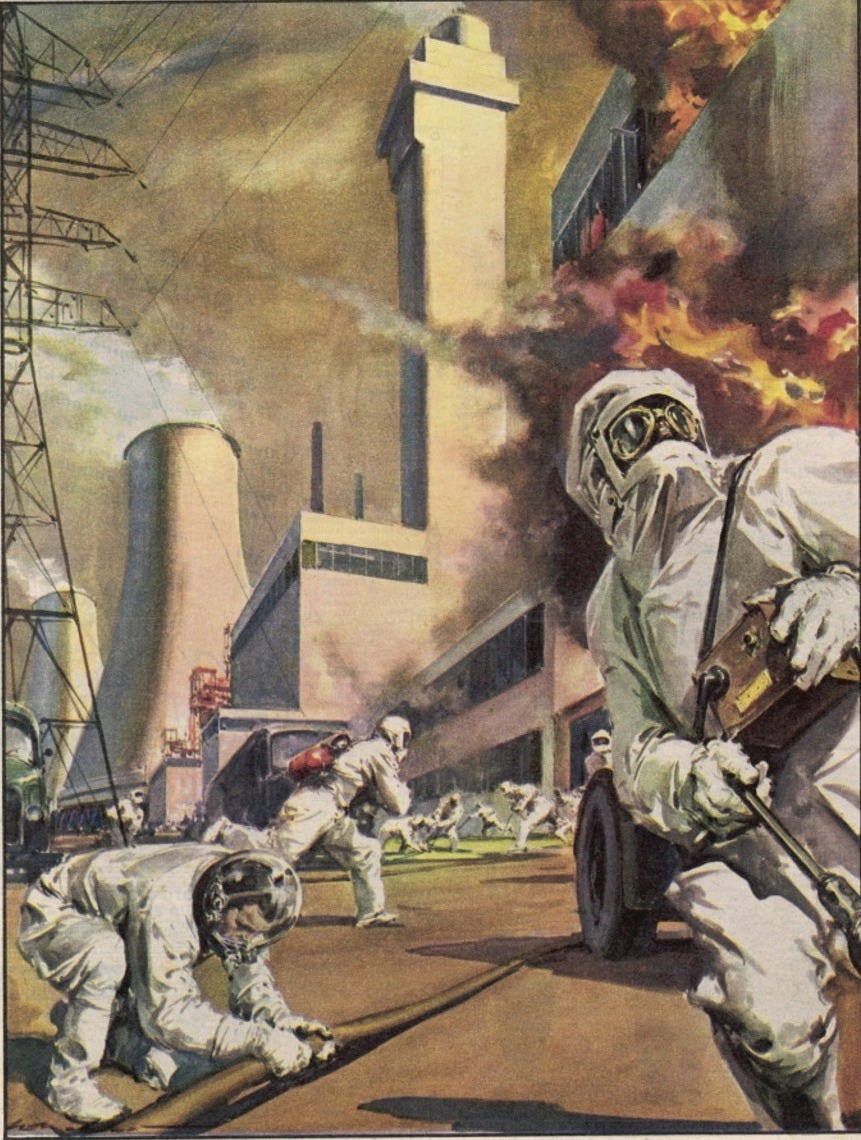Why Britain Fell Behind, Part 1: Introduction & Index
A Study of a Surprising Failure
Arguably the defining issue of postwar British history is national decline. It was believed, at the time and to a lesser extent since, that Britain had not only lost power and influence due to the inevitable end-of-empire, but had failed to modernize and keep pace economically with its competitors, especially West Germany and Japan. The country that had emerged victorious from WW2 as the world’s 3rd most powerful state and Europe’s economic leader was, by the 1970s, reduced to being the “sick man of Europe”.
There are two competing narratives around this. One is what I like to call “Thatcherite Mythology”. In this telling, it was the Attlee government's socialist reforms, followed by limp-wristed One-Nation Tory governments that accommodated them, which doomed Britain to relative decline, only to be rescued from the nadir of the 1970s by Thatcher’s free market revolution in the 1980s.
The other narrative is what can be called the “Anti-Declinist” view of postwar British history, a view that has become popular in recent years due to the work of historians like David Edgerton and Jim Tomlinson. Edgerton’s book “The Rise and Fall of the British Nation” is the flag carrier of this viewpoint. In this telling, Britain’s postwar decline was largely a myth, a mirage generated by the inevitable catch-up by the rest of the world that was poorer than the UK and thus certain to grow faster.
There are elements of truth in both these narratives, but I find neither to be a satisfactory explanation. Britain really did fall behind, and quite badly so in many respects. But the story is far more complicated than mere “socialism”, as Thatcherite Mythology suggests. And the Thatcherite medicine was far more of a mixed bag than its supporters like to admit.
A Study of a Surprising Failure
This extended essay is an examination of that history. I originally intended it to be a single post (and I hope to compile it into a single document eventually), but its sheer length (despite my repeated efforts to trim it) and the time it is taking to write mean it is more practical to split it into separate parts, linked below. If it feels a bit truncated or meandering at different places, this is why.
Introduction and Index [This Page]
The Good, the Bad, and the Attlee (Coming Soon)
The Rot Sets in: Britain in the Fifties (Coming Later)
Cargo-Cult Dirigisme: Britain in the Sixties (Coming Eventually)
Etc
The story of postwar Britain is a relevant one as Britain today faces a far worse economic malaise. It’s the story of a country making a series of errors, each perfectly understandable in its own right, that collectively accumulate into a mess, worsened by its botched attempts to fix things. That is a very modern malady.


